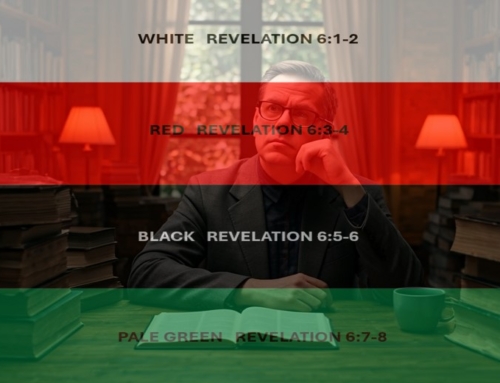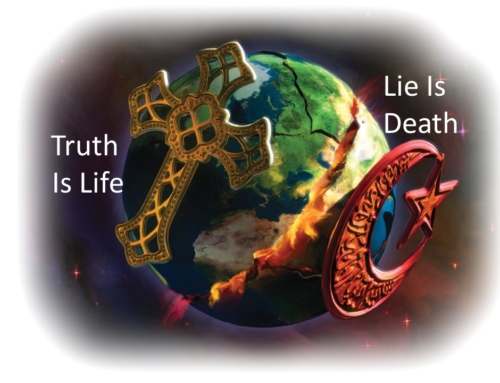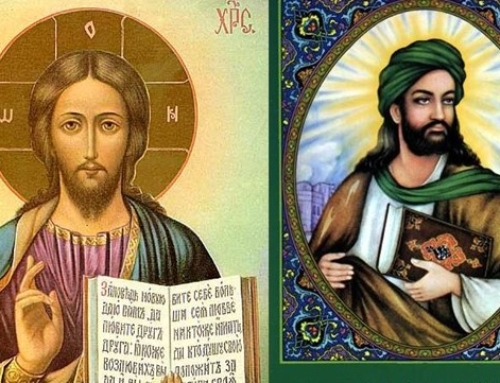Jesus Is Eternal, The Alpha and the Omega
Jesus eternal existence truth is clearly proved in the Bible many times. Muslim scholars, Jehovah Witnesses and some liberal theologians try to make the case that Jesus was “begotten.” By this they mean Jesus was created and not eternal. If Jesus was created, he cannot be God. If Jesus is eternal, Jesus is God. Since Islam teaches Jesus is not God, the Koran’s truthfulness depends on Jesus being created, while the Bible says Jesus is eternal. Which book is correct? Both cannot be correct. The eternal existence of Jesus is true.
To know the truth, we must search the Bible, and not rely on man’s theories or arguments. Only the Scripture matters. The point of argument comes from the King James (KJV) and New American Standard Bible (NASB) translation of John 3:16-17:
John 3:16-17 (KJV)
For God so loved the world, that he gave his only begotten Son, that whosoever believeth in him should not perish, but have everlasting life. For God sent not his Son into the world to condemn the world; but that the world through him might be saved.
This phrase “only begotten” causes problems. False teachers have latched onto this phrase to try to prove their false teaching that Jesus Christ isn’t God; i.e., that Jesus isn’t equal to God the Father as the Second Person of the Trinity. They focus on the word “begotten” and say that Jesus is a created being because only someone who had a beginning in time can be “begotten.” What does the word “begotten” mean? Begotten means (especially of a male parent) to procreate or generate offspring, or children. It implies the offspring was created and not eternal. Therefore, false teachers focus on this word to try to prove Jesus is not God.
What this fails to note is that “begotten” is an English translation of the Greek word “monogenes.” As such, we must look at the original meaning of the Greek word, not transfer English meanings into the text.
The Greek word is Monogenes
The original Greek text does not use the word begotten, but uses monogenes. Monogenes has two primary definitions, “pertaining to being the only one of its kind within a specific relationship” and “pertaining to being the only one of its kind or class, unique in kind”. Thus monogenēs (μονογενὴς) may be used both as an adjective monogenēs pais, meaning unique and special.
In Hebrews 11:17 the writer refers to Isaac as Abraham’s “only begotten son” (KJV). Abraham had more than one son, but Isaac was the only son he had by Sarah and the only son of the covenant from God. Ishmael was excluded. Therefore, it is the fact that Isaac was the only one in the relationship of Sarah and God among his other sons that allows for the use of monogenes in that context.
In John 3:16 Monogenes means “the only one in its class, unique”
The second definition is “pertaining to being the only one of its kind or class, unique in kind.” This is the meaning that is implied in John 3:16 (see also John 1:14, 18; 3:18; 1 John 4:9). John was primarily concerned with demonstrating that Jesus is the Son of God (John 20:31), and he uses monogenes to highlight Jesus as uniquely God’s Son—sharing the same divine nature as God—as opposed to human believers who are God’s sons and daughters by adoption (Ephesians 1:5). Jesus is God’s “one and only” Son.
John 3:16-17 (NIV)
For God so loved the world that he gave his one and only Son, that whoever believes in him shall not perish but have eternal life. For God did not send his Son into the world to condemn the world, but to save the world through him.
The bottom line is that terms such as “Father” and “Son,” descriptive of God and Jesus, are human terms that help us understand the relationship between the different Persons of the Trinity. If you can understand the relationship between a human father and a human son, then you can understand, in part, the relationship between the First and Second Persons of the Trinity. The analogy breaks down if you try to take it too far and teach, as some false teachers, that Jesus was literally “begotten” as in “produced” or “created” by God the Father. Jesus has always existed. We see this is in the first chapter of the Bible in Genesis 1:26. Genesis says: Then God said, “Let us make mankind in our image, in our likeness.” “Our” is theTrinity.
Jesus is Eternal
Scripture acknowledges that Jesus, as the Son, is fully God. In the well-known prophetic statement in Isaiah 9:6, the son is “Mighty God” and “Everlasting Father.” John’s Gospel begins with the affirmation that Jesus Christ is fully God. John refers to Jesus as the “Word” of God. The background to this term is Psalm 33:6, in which the Bible tells us the Word of God created the heavens and the earth.
Isaiah 9:6 (NIV)
For to us a child is born, to us a son is given, and the government will be on his shoulders. And he will be called Wonderful Counselor, Mighty God, Everlasting Father, Prince of Peace
John 8:58-59 (NIV)
“Very truly I tell you,” Jesus answered, “before Abraham was born, I am!” At this, they picked up stones to stone him, but Jesus hid himself, slipping away from the temple grounds.
Revelation 1:8 (NIV)
I am the Alpha and the Omega,” says the Lord God, “who is, and who was, and who is to come, the Almighty.”
Revelation 21:6-7 (NIV)
He said to me: “It is done. I am the Alpha and the Omega, the Beginning and the End. To the thirsty I will give water without cost from the spring of the water of life. Those who are victorious will inherit all this, and I will be their God and they will be my children.”
The Mark and Image video is here:
Much more prophecy has been fulfilled than most people understand. Our job is not to focus too much on fulfilled prophecy–but rather tell as many people about the Gospel–while we still have time.
A summary of what has happened since World War II is listed here:
Spread the Gospel
Keep praying for the Holy Spirit to allow Muslims to learn the truth of Jesus while they still have some time.
Share this video with your Muslim friends:
The Library tab has articles that explain each lesson in further detail.
Click here to email us.







